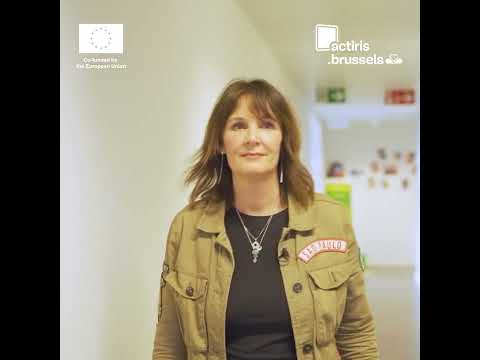Problem addressed
INNOVCare’s actions targeted people with rare diseases - 36 million EU citizens and their family members – and others with complex conditions and disabilities. Evidence from the European survey conducted within INNOVCare shows that people with rare diseases and their carers often face e.g. disability, social exclusion, unemployment and economic hurdles - 7 in 10 respondents had to reduce or stop their professional activity and 69% faced an income decrease. The complexity of care pathways and the lack of coordination between care providers are two of the main challenges that INNOVCare aimed at addressing.
Innovative solution
INNOVCare’s specific objectives included:
- Assessing the unmet social needs of people with rare diseases and their family members, often the main carers;
- Proposing an innovative care pathway, using a national resource centre for rare diseases (one-stop-shop service) and regional case managers, in partnership with public bodies:
- Implementing a pilot in Romania;
- Analysing its socioeconomic impact and the cost-benefit;
- Promoting the exchange of good practices via multi-stakeholder workshops and the creation of an European Network of Resource Centres for Rare Diseases;
- Analysing opportunities/challenges to upscale the care model to other MS and beyond RD;
- Strengthening partnerships between public, private and civil society organisations.
Key results and benefits
The main outcomes of INNOVCare included:
- First European survey on the unmet social needs of people with rare diseases and their family members, often the main carers carers;
- Factsheet: why integrated care for people with rare diseases;
- Case studies and good practices/strategies to implement integrated care for people with rare diseases and other complex conditions and disabilities (e.g. https://bit.ly/2CVfmRk ; https://bit.ly/2Sy3n1O)
- Case managers for rare diseases: role and training outline;
- Results of pilot of case management - Romania, 2017-2018; each beneficiary received the service for 9 months -, with various positive outcomes:
- Increase in beneficiaries level of information about their disease, their rights and available services as well as in their capacity to manage their own care;
- Reduction in burden faced by caregivers;
- Improvement in coordination between care providers;
- Robust evaluation tools that can be used in other countries/projects to assess similar interventions;
- Identification of opportunities/challenges to up-scale integrated care for people with rare diseases and other complex conditions in European countries;
- Recommendations to the EU and Member States on up-scaling integrated care, based on key priorities identified via the up-scaling analysis and the multi-stakeholder workshops;
- Engaged group of experts, across all stakeholders, co-creating and disseminating the outcomes of the project (100 participants, 24 countries);
- Support to Romanian policy reforms on case management for people living with disabilities.
Potential for mainstreaming
The project's outcomes can be transferred and up-scaled to effectively support the EU and EU Member States to implement the European Pillar of Social Rights, by addressing unmet social and employment needs of people with rare diseases and other people in vulnerable situations.
INNOVCare’s recommendations to EU and European countries focus on three main areas:
- Creating a supportive political environment at national level;
- Implementing mechanisms that support integrated care and the empowerment of beneficiaries at national level;
- Making full use of EU instruments to develop integrated care at European and national level e.g.: Multi-annual financial framework to support EU-wide platforms and transfer good practices; European Structural Funds to support up-scaling of innovative pilots.
The project’s robust data collections and solid evaluation methodologies provided quality evidence to support policy development. INNOVCare also involved public bodies, civil society, service providers and academics from across Europe - including an Advisory Group of representatives of national competent authorities – to ensure that the good practices/care model were co-developed with the various stakeholders, thus being more sustainable. It is a challenge to ensure that these experts continue to learn from each other and to support the up-scaling, in absence of the platform provided by INNOVCare.
There is high interest from other European countries in learning from and up-scaling INNOVCare. The presentation of the project at the EaSI committee and ESF+ working group (Oct. 2018) meeting was a great opportunity to disseminate the project to Member States. INNOVCare’s results were also presented at national conferences. Further opportunities are necessary to continue taking the good practices developed to other EU countries.
In Romania, an Advisory Committee of national stakeholders was involved in the design and implementation of the pilot. And the project directly contributed to the national reforms on case management for people with rare diseases and disability and to the formal introduction of the case management in the job description of community nurses. RPWA (NoRo Center) and RONARD signed a partnership agreement with Ministry of Health Romania to train community nurses from Romania on case management for people affected by rare diseases and by now, they already trained through different projects 1154 community nurses, using ECHO methodology (Extension of Community Health Outcomes). In addition, the NoRo Centre developed online tools to monitor and report the cases to Ministry of Health and to facilitate connection of people with rare diseases with Medical Centres of Expertise in Romania, reducing the waiting time for people and their families (Virtual Case Management).




